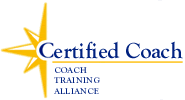
Overview of Services






Employee Relations Consulting
THRWC works closely with the designated appointed authority to investigate any internal issues and work to resolve these problems, sensitively and confidentially. Issues may include complaints of harassment, discrimination or any other matters that could be classified as high risk. Serves as the first point of contact for advice and problem solving in the areas of employee relations, performance management. Provides guidance on various maters including Diversity, Equity, Inclusion, documentation and policies.
Emotional Intelligence Practitioner
Emotional Intelligence (EI) involves a set of skills that help us perceive, understand, express, reason with, and manage emotions, both within ourselves and others. We can apply these skills to help us to become more conscious of our own and others’ feelings, and more conscious of the influence emotions are having on our decisions, behavior, and performance. This in turn helps us maximize their productive qualities.


Executive Coaching
Coaching is continuous learning and development process to improve motivation and productivity of employees that will boost the company’s bottom line. In today’s thriving self-development industry, coaching not only helps people solve problems and achieve their goals, but they also motivate, inspire and improve the workplace productivity. Coaching helps in achieving and employees’ goals and objectives as well as setting higher standards of excellence across the organization. Coaching promotes creativity, breakthrough performance and resilience, giving organizations a competitive edge and an effective way to operate within and environment of continuous change. Successful organizations have recognized that they must be able to provide coaching to their employees and each other, and have included coaching in their management/leadership development.
Essential Workplace
Skills Facilitation
While your technical skills may get your foot in the door, your people skills are what open most of the doors to come. Your work ethic, your attitude, your communication skills, your emotional intelligence and a whole host of other personal attributes are the essential skills that are crucial for a career success. With these skills you can excel as a leader. Problem solving, delegating, motivating, and team building are all easier if you have good essential skills. Knowing how to get along with people and displaying a positive attitude are crucial for success. The problem is that these core skills are often undervalued, and there is far less training provided for them those hard skills. For some reason, organizations seem to expect people to know how to behave on the job. They tend to assume that everyone knows and understands the importance of being on time, taking initiative, being friendly, and producing high quality work. Assuming that these skills are universal leads to much frustration. That’s why it’s so important to focus on Workplace Essential skills training and developments as you do on traditional hard skills.


Employee Life-Cycle Management
What is employee Life cycle management?
ELM is the different stages an employee goes through during their time at an organization. An organization’s role during ELM is vital and begins even before the employee has been hired.
Generally it is accepted that there are six stages in ELM:
-
Outreach
-
Recruitment
-
Onboarding
-
Development/training
-
Performance
-
Off boarding
The process encompasses the way the organization presents itself, the way it interacts with candidates, how it welcomes people into the organization and manages their personal and professional development within the company.

